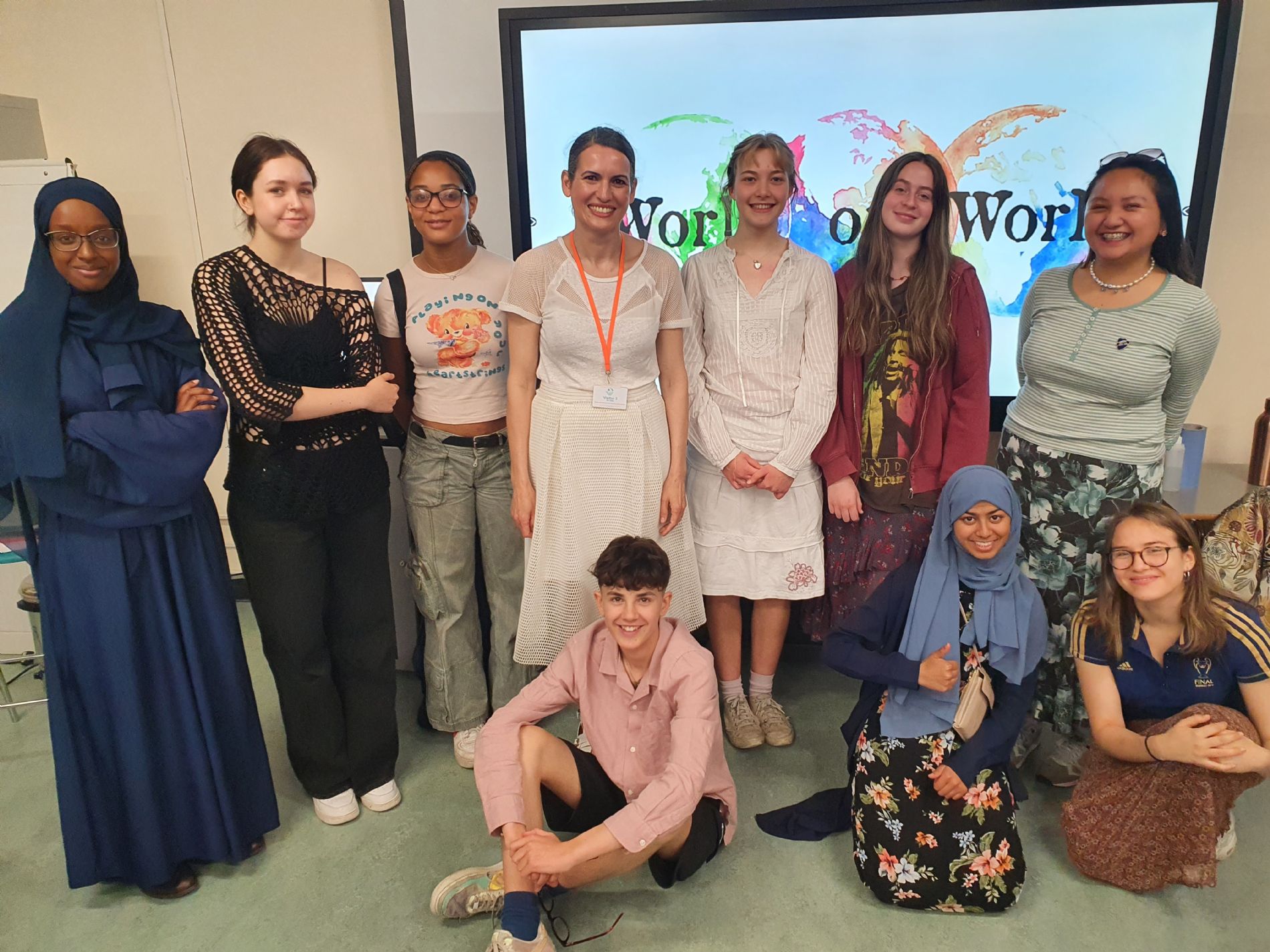Assembly Speaker, 27 June
Marie Cessbron-Bloomberg Innovation Consultant
On Monday we had the pleasure of meeting the independent innovation consultant, Marie Cesbron-Bloomberg who came in to give us one clear message: it’s ok to not know what profession you want to be, and then advised us how to map out clear steps in order to help us explore our passions and spark our interests in the wider world of work.
She began by sharing her own experience of navigating the workplace, she grew up in France and graduated from business school moving into marketing for the cosmetic company Loreal. After a while she decided she wanted to change ‘scenery’, this resulted in her move to New York continuing her career in marketing. After a while again she decided to move back to France and re-enrol in University studying social sciences and psychology thus igniting her passion in research and innovation. With this new passion she moved to London and began working for Boots, then eventually deciding to work independently as an innovation consultant where she helps brands from Chanel to Laughing Cow to renew and improve what they do in marketing. Through learning about her experience and her journey through her different jobs it helped give us the confidence to be open to all opportunities and not feel an obligation to having to be set on a certain career or path.

She gave us five key reasons as to why we should be zooming out before zooming in, to help us navigate what career we want to explore in the future.
One: there are many careers that are invisible to us now and so it may not be apparent to us what career actually best fits us, therefore we should be broadening our search and tailoring our passions to what we really want to do.
Two: there are also careers that may not exist yet, the technological industry is moving so fast that your future job may not be even one that is on the market yet.
Three: Accept that, just like Marie you will probably have multiple professions before settling down into one career.
Four: Focus on the sector you believe fits you most as opposed to the actual role, therefore you will have the freedom whilst also tailoring the different careers to you as a person.
Five: Marie really emphasised beginning with you finding what you enjoy and what you are good at before deciding on any career.
To help filter what we may enjoy as a means of deciding on a career path, she introduced us to the four sectors, the primary sector, the secondary sector, the tertiary sector and the quaternary sector. The primary sector helping to extract raw materials, the secondary sector in charge of manufacturing, the tertiary sector leading services and the quaternary sector in charge of knowledge. These sectors help us gain a broad view about the type of skill sets and impact we may have in a certain field. However, these sectors can be narrowed down even more into the public, private, social and benefit sectors, which focuses on the aims of organisations and the income they produce. The benefit sector was an especially interesting sector as it combined profit whilst being beneficial for the world, sustaining both a healthy world and generating income. One example of a company that harnesses this sector is the toilet roll company, Who Gives and Crap, 50% of their profits being put towards funding the implementation of toilets around the world in areas which do not have access to sanitation and toilets.
The main takeaway from this talk was the importance of looking inwards and finding a balance; we were urged to spend time looking at ourselves, what are we good at and what we love to do to help us find a career that fulfils us and gives something back to the world, sustaining our lives. Marie summed this up very powerfully with the Japanese concept of Ikigai, which means your 'reason for being’.
Alice - Sixth Form Senior Prefect